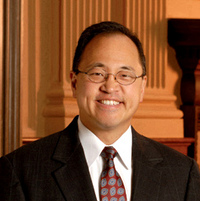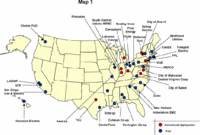 The New York Review of Magazines catches up with Time Warner and the postal
rate hikes it lobbied for and got.
First, the bottom line:
The New York Review of Magazines catches up with Time Warner and the postal
rate hikes it lobbied for and got.
First, the bottom line:
…the true price of letting corporations shape government policy: free speech.The NYRB gets into some of the underlying political machinations:— Going Postal, Callie Enlow, New York Review of Magazines, 2008
Even Time Warner was taken aback. Halstein Stralberg, co-creator of Time’s rate proposal, said, “There was a new chairman at the commission and there was a totally new environment, and they adopted it, to my surprise.”The NYRM noted the sudden parachuting in of a new chairman just before the decision as unusual:
In the corporate world, The Progressive Populist would most likely be forced out of business. But should the same rules apply when the product is ideas and the conduit is a government-owned monopoly? To the current administration, the answer is yes, said Cullen. The president appoints the five commissioners that compose the Postal Regulatory Commission. Between the 2005 Time Warner complaint, when the PRC rejected the corporation’s proposed rate restructuring, and the 2006 rate hearings, when the PRC adopted the suggestions almost verbatim, two new commissioners joined the PRC. One of them, Dan G. Blair, replaced George Omas as chairman just one month before the end of the rate cases, a move that Bob Cohen described as “pretty unusual.”However, the NYRM didn’t follow up on the other chairman, the chairman of the Postal Board of Governors from January 2005 to January 2008, James C. Miller III, and his 27-year-old theory:
“…none should be favored and none benefited. Each party pays the cost of service it consumes, not less, and does not bear the cost of others’ consumption.”Curious how someone with that philosophy should be chairman just at the time the decision was made.
The NYRM does say what happened, why it was unusual, and who it affected: Continue reading








